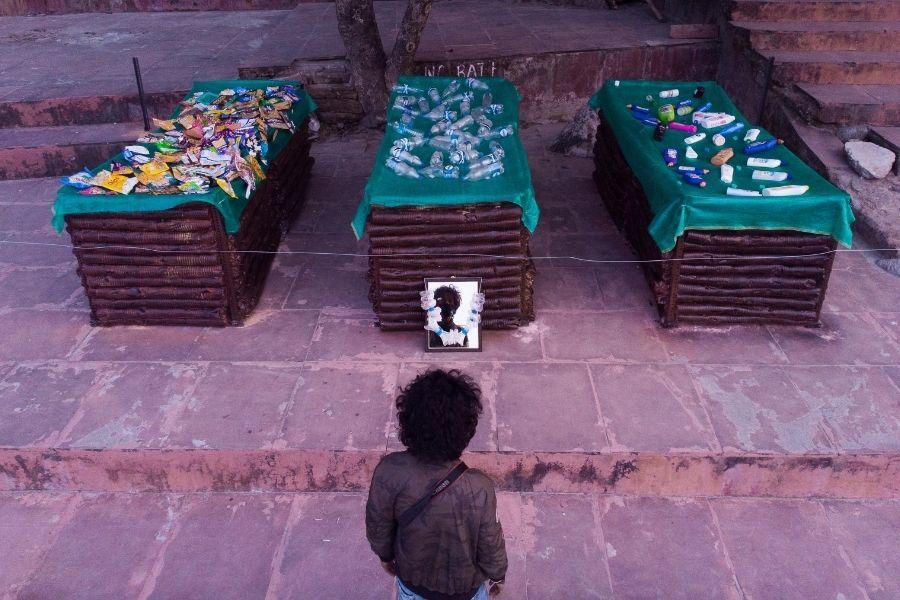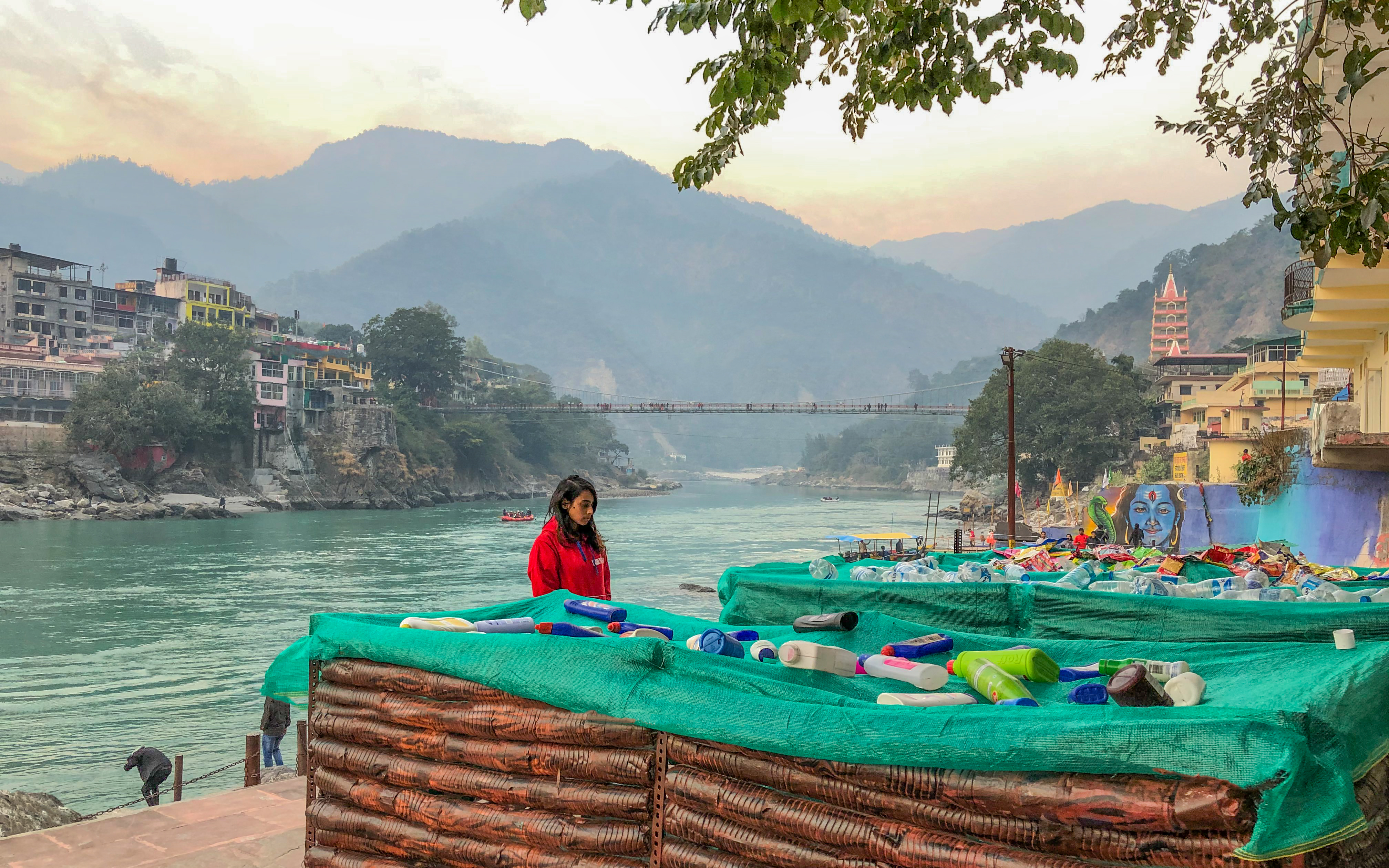Deathbeds made of single use plastic scoured from the Ganga
The art installation is called SUP (single-use plastic) DeathBed, and is made using 26 kilograms of plastic, the average amount of waste generated by an Indian in a year
Located in the foothills of the mighty Himalayas, Rishikesh in Uttarakhand attracts tourists from India and around the world throughout the year. A whopping 6.62 lakh tourists visited Rishikesh in 2018 for pilgrimage, leisure and adventure sports. On the one hand, while tourism is opening up many employment opportunities and contributing to the economy due to the rising footfall, on the other, it is also making way for an unprecedented usage of single-use plastic.
In 2008, when I first visited the city, I was charmed by its pristine waters, the frosty wind, and the chaos of the city. Cut to today, I stand in front of an art installation that I curated from the scraps of single-use plastic collected from the Ganga cleanups. This is the world’s first SUP (single-use plastic) DeathBed made out of 26 kg single-use plastic, the average amount of waste generated by an Indian in a year. This art installation stands tall at the Freedom Ganga Ghat, Lakshman Jhula, Rishikesh.
The art installation is launched under project #sustainably. Started on September 18, 2020, the project coincides with the commencement of United Nations Global Goals Week and is carefully curated along with the targets and indicators of the United Nations Sustainable Development Goal 13-Climate Action. The SUP DeathBed was installed on December 20, 2020, on the occasion of UN International Human Solidarity Day. The dimensions of each of these three art installations are 8ftx3ftx3ft. They are curated from 3,000 SUP bottles, wrappers, and containers collected from clean-ups organised under the project. Ahead of the installation stands a mirror, reflecting the onlooker, creating an illusion of seeing oneself on the DeathBed, driving a larger thought around the usage of SUP and its impact.
Rishikesh generates about 10,950 metric tons of municipal solid waste every year with 0.278 kg/capita/day. According to research conducted by the Gati Foundation, 50 percent of the litter-strewn across the hillside at major tourist spots were primarily SUP waste.
My team and I comprising eight volunteers, with the support of a local NGO Clean Himalaya, visited over 180 homes and 220 hotels in the Tapovan, Laxman Jhula, and Rishikesh region over a period of 30 days to educate people about the importance of waste segregation. In a period of four months, we organised six clean-up drives at waterfalls, ghats, and beaches and collected over 230 kgs of plastic waste, out of which 26 kg was eventually used to prepare the SUP DeathBed and the remnants were sent to a recycling facility.
According to a report by the World Wildlife Fund and the University of Newcastle in Australia, we consume five grams of microplastic every week which is equivalent to eating a credit card. This means we consume 21 grams of microplastic per month and about 250 grams per year, implying that the plastic waste generated by each of us is coming back at us, in different forms. The SUP DeathBed installation, is, therefore, a reminder for us of the toxic cycle where with every use of plastic, we're an inch closer to the deathbed.
Although the role of SUP as the world’s greatest enemy is not unknown. The World Meteorological Organization's [WMO - UN] annual climate report says that 2020 is on course to be one of the three warmest years on record after 2016 and 2019. The average global temperature is set to be about 1.2 degrees Celsius above pre-industrial levels. We are way past the so-called 'right time to act' to stop the changing climate. If we do not act promptly right now, that time is not far when we will have another global atrocity challenging us.
As a climate change activist, I see the art installation driving home the importance of sustainability. With the SUP DeathBed Art Installation made out of a year’s plastic waste generated by an Indian, I aim to inspire people to give up SUP and let it rest in peace while we all shift to sustainable alternatives.
The writer is a responsible traveller and climate change activist. He can be reached at namaste@aakashranison.com
The thoughts and opinions shared here are of the author.
Check out our end of season subscription discounts with a Moneycontrol pro subscription absolutely free. Use code EOSO2021. Click here for details.


